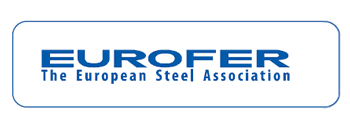Brussels, 6 December 2017 – After four years of deadlock in negotiations, the European Commission, Council and Parliament yesterday finally reached a political agreement on the modernisation of Europe’s Trade Defence Instruments (TDI).
“The European Steel Association (EUROFER) welcomes the fact that there has been an agreement, one which is a step forward in improving the EU’s TDIs. We now urge the EU institutions to formally adopt the deal”, said Director General Axel Eggert of EUROFER. “This compromise is a balance between the views in the Council and the European Parliament”.

“The agreement is not as ambitious in improving the effectiveness of the EU’s TDIs as we initially had hoped. However, it contains a number of improvements, such as a minimum target profit of 6%. This target profit represents a safety net for the sector when injury margins are being calculated”, added Mr Eggert.
EUROFER has long called for action to improve the EU’s trade defences. Half of all anti-dumping measures in force in the EU involve steel imported onto the EU market. Of the around 90,000 steel jobs lost since the economic crisis, a very large proportion owe their disappearance to this dumping of unfairly priced foreign steel.
“On balance this agreement is welcome given that it will speed up the process and should, in principle, help deliver more effective anti-dumping duties”, concluded Mr Eggert. “With the final approval of the new Non-standard Anti-Dumping Methodology (NADM) expected by the end of 2017 the EU will have moved some way towards having, at long last, an overall trade defence regime better suited to current global challenges.”
About the European Steel Association (EUROFER)
EUROFER is located in Brussels and was founded in 1976. It represents the entirety of steel production in the European Union. EUROFER members are steel companies and national steel federations throughout the EU. The major steel companies and national steel federations in Switzerland and Turkey are associate members.
About the European steel industry
The European steel industry is a world leader in innovation and environmental sustainability. It has a turnover of around €170 billion and directly employs 320,000 highly-skilled people, producing on average 160 million tonnes of steel per year. More than 500 steel production sites across 22 EU Member States provide direct and indirect employment to millions more European citizens. Closely integrated with Europe’s manufacturing and construction industries, steel is the backbone for development, growth and employment in Europe.
Steel is the most versatile industrial material in the world. The thousands of different grades and types of steel developed by the industry make the modern world possible. Steel is 100% recyclable and therefore is a fundamental part of the circular economy. As a basic engineering material, steel is also an essential factor in the development and deployment of innovative, CO2-mitigating technologies, improving resource efficiency and fostering sustainable development in Europe.
